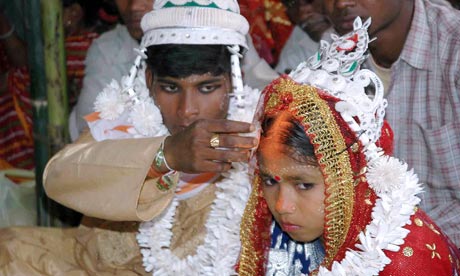
India Sisters
"Our Sisters in India"
"Black skin or white skin, yellow or brown,
For one and for all Christ laid His life down."
If we could but once have the curtain lifted that separates us from India, and could see how millions and millions of our poor sisters live, or if we could but for one day change places with them and live as they live, and feel as they feel, would we not have more of this impartial love of Christ in our own hearts? We forget how many they are, how needy they are, and how they are looking toward us with beseeching eyes and outstretched hands.
London is the largest city in the world, yet if it were twenty-three times as large as it is there would not be any more men, women, and children in it than there are women and girls in India! (1893)
And they are not like the free, happy, educated girls and women that you see on your own streets.
Forty millions of them are shut up in zenanas, which are the portions of Indian gentlemen's houses set apart for the women,-not beautiful parlours, but dark dirty, uncomfortable dens which are "more suggestive of the hopeless seclusion of the prison than of the social sunshine of the home." They may never go where they like, not even in their own houses, and may never go for a walk, nor for a drive. If they go out at all they must be shut up tight in a palky where they cannot see a thing. They may never pick a flower, or listen to the birds singing, or see the street. If one wishes to speak to her husband she must not go to look for him, but wait till he chooses to come to her. She must not lift her vail or speak to her husband in the presence of her mother-in-law, or of any member of the family older than herself. She must obey her husband's mother in everything, no matter how cross and cruel she may be. If the Hindu wife has a little boy she is treated kindly, but if she has no son she is despised, and her husband gets another wife.
These rich ladies cook their husbands' meals, but they cannot eat with them. They and the children must eat what the husbands leave. They cannot eat anything until it has been offered to a man. They cannot read, for they have never been to school. So they spend their time in cooking, eating, sleeping, plaiting their hair, counting their jewels, threading beads, worshipping the idols, and gossiping; and some smoke. In gloom and many times in despair they pray to their idols, but the idols cannot hear nor help them.
Many of those who live in the zenanas begin that wretched shut-in life when they are but little girls like the tiny bride in our picture, or even younger. Her wedding day is her last day of liberty, even if she has been allowed to go to school or run about before. She is now a wife, and must be treated as a woman and not as a child. She must say good-bye to her mother and to everybody and everything that she cares for, and go into a strange family, all by herself, with no one to love or care for her. Poor little girl, how sad and lonely she must feel!
But being a wife in a zenana is pleasant compared with being a widow.
Twenty-one millions of the women and girls of India are widows!
"Of women and girls!"
Yet of the vast number of widows under fifteen years of age, 33 per cent. are widows under five years of age!
And being a widow is not like being a widow in England. She may never have another husband, and she may never again have any kindness shown her. She is thought to be very wicked, or else her husband would not have died. Years ago, the screaming and struggling widow, in many cases herself a mere child, was bound to the dead body of her husband, and with him burned to ashes." Although this burning is not allowed now, they are treated just as cruelly, and they say they would rather be burned, for then their pain would last only a very little while, but now their misery lasts all their life.
As soon as the husband is dead, they tear the ornaments out of the wife's nose and ears and hair, sometimes tearing out the flesh and hair with them. She must never wear any more ornaments, and must dress in the coarse white clothing of widowhood. If there are bracelets in her arms, some of the women hold her arm on the ground, and others hammer the bracelet with a stone until it is broken off. During the funeral ceremony she is treated most cruelly, and after it she must for a year eat but once in twenty-four hours, and then nothing but a dish of rice.
In some parts of India she may eat but one meal a day as long as she lives, and twice a month she must fast for twenty-four hours. And even her one meal a day must be carried away and eaten by herself after everyone else has finished. She must never sleep on a bed, but on the floor, and she must do the hardest and dirtiest work of the house, and be scolded for all that is wrong, and praised for nothing that is right. When she is ill she is treated even worse than the other women.
The widows are treated in this way, ..., because their religion makes them think that the gods would be displeased if they treated them kindly.
We have been all this time talking about the high-caste ladies. The low-caste women have greater freedom, that is, they are not shut up in zenanas, but they have to labour hard and carry heavy weights on their heads, and are treated very cruelly by the men, who say that a cow is worth much more than a women.
Now, my child, when you are tempted to feel unhappy and discontented, think of your sisters in India, and see if you have not a great deal to be thankful for. There are many who are worse off than you. If you will stop thinking about the few unpleasant things which you have to endure, and begin to think of others and do something for those who are worse off, you will not only learn to be contented but you will find that you have many things to make you thankful and happy. And one never-ending cause of joy you may always have, and that is that you know of the living God who is not only great, but good; not only powerful, but kind; not only God, but Father. As long as you have this glad news, you always may have something to give to those who know Him not.
August 10, 1893 EJW, PTUK 299-300.12
